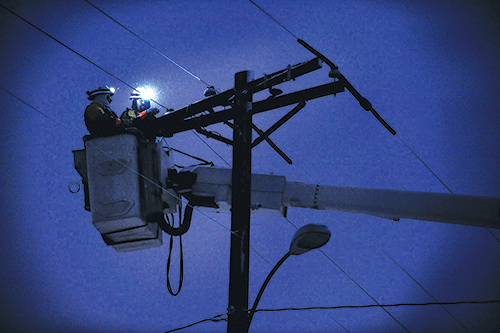A RECENT study has shed light on the importance of reliable electricity supply by illuminating the immense price to pay for power interruptions which can easily run into millions of dollars per hour in lost productivity and capacity.
The study, conducted by the Electricity Control Board (ECB), shows the total annual economic cost at a national level, resulting from unplanned transmission system outages. This price to pay ranges from N$126 million over weekends or over N$5 million per weekend hour, to N$1 billion during weekdays, or just more than N$41 million per weekday hour.
The ECB initiated the study to assess the economic impact of unscheduled electricity outages in Namibia, as assessed by the cost of unserved energy.
General manager of economic regulation at ECB, Pinehas Mutota delivered the results of the study on behalf of ECB CEO Robert Kahimise on Tuesday.
“The study highlights that the direct effects in specific industries have indirect repercussions across the entire economy. In the case of unmitigated electricity outages, reduced sales due to production losses lead to decreased purchases from suppliers, resulting in a reduction in gross value added,” the CEO explained.
The cost of unserved energy is used to provide an economic value to the cost of electricity supply interruptions to electricity customers and the economy as a whole.
According to the study these values are used to inform a number of investment and refurbishment decisions on the electrical power system, with the aim of optimising the reliability of the network.
Furthermore, looking at neighbouring South Africa, the study noted the wide-ranging economic cost of a full day blackout in that country is more than R54 billion. The study showed that 27 days of continuous stage one load shedding in SA has a similar economic cost as a day-long nation-wide blackout.
Meanwhile, Namibia remains a net importer of electricity from the Southern African Power Pool (SAPP), and has struggled over the decades to build new domestic generating capacity to become more independent. Despite these challenges the country maintains a reliable supply of electricity.
And, despite greater renewable energy capacity, Namibia electricity imports are still more than 70% of the power needed. Now, with power supply from the key Ruacana hydroelectric power station becoming more insufficient, the challenge on renewables, including Green Hydrogen, solar and wind, has increased significantly.


